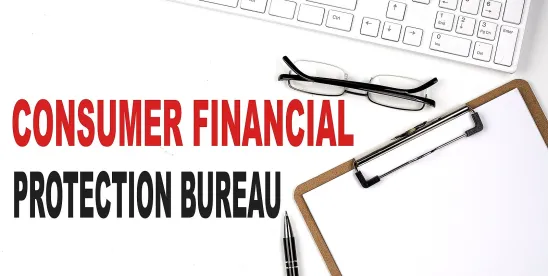On July 18, the CFPB proposed a new interpretive rule that would characterize earned wage access (“EWA”) products as extensions of credit and subject to the Truth in Lending Act and Regulation Z. Under the interpretive guidance, both the “tipping” function on EWA products, and the “expedited funds delivery fee” would be treated as finance charges, and would require the creditor to make the disclosures required for unsecured extensions of credit under Regulation Z. However, an employer-sponsored program which is provided at no cost to the employee (i.e., without what the CFPB has deemed a “finance charge”) would not require such disclosures.
In the last few years, programs that enable employees to have early access to their wages have exploded in popularity. Two types of EWA models dominate the marketplace—employer partnered products, and direct-to-consumer. For “employer-partnered” products, providers contract with employers to offer funds in amounts that do not exceed wages employees have accrued. Those funds are recovered via payroll deductions. “Direct-to-consumer” products provide funds to employees in amounts that they estimate to be below accrued wages and then these funds are recovered via automated withdrawal from the consumer’s bank account.
The Bureau’s interpretive guidance runs counter to its 2020 interpretive rule where it stated that EWA products were not credit if it met several identified conditions, including: providing the consumer with no more than the amount of accrued wages earned; provision by a third party fully integrated with the employer; no consumer payment, voluntary or otherwise, beyond recovery of paid amounts via a payroll deduction from the next paycheck, and no other recourse or collection activity of any kind; and no underwriting or credit reporting. With this guidance, the Bureau has now walked back from that view.
Notably, the Bureau’s interpretive rule has taken direct aim against products that allow consumers to provide voluntary tips. The Bureau did not definitely say that voluntary tips are finance charges. It did, however, provide a list of factors to be weighed. For example, if an EWA provider is “soliciting a ‘tip’ before or at the time of a credit extension (rather than some significant time after it); labeling the solicited payment with a term (such as ‘tip’) that carries an expectation that the consumer will make such a payment in the normal course; setting default ‘tip’ amounts or otherwise making it practically more difficult for the consumer to avoid leaving a ‘tip’; suggesting ‘tip’ amounts or percentages to the consumer; repeatedly soliciting ‘tips,’ even in the course of a single transaction,” or stating that tipping may impact subsequent access to the product, are all factors that would show that the tipping feature was a finance charge.
Comments on the proposed interpretive rule must be provided by August 30, 2024.
Putting It Into Practice: After a barrage of state laws were enacted (see our blog posts on Nevada, Wisconsin, Kansas, and Arizona), the Bureau has finally stepped in and offered its views. However, it has already received strong pushback. The Financial Technology Association criticized the interpretive guidance as “one that will hurt millions of workers who rely on Earned Wage Access to tap into their already earned wages so they don’t have to depend on outdated monthly or biweekly pay periods to manage their expenses.” Should this interpretive rule be finalized by the CFPB, all creditors engaging in early wage access programs (including employers) will have to consider whether they need to be licensed as lenders in the states in which they are doing business. A few states currently do not treat early wage access programs as extensions of credit for licensing purposes, but it is certainly possible that those states will reconsider their position, and other states that have not addressed the issue may then determine that licensing is required.




 />i
/>i
